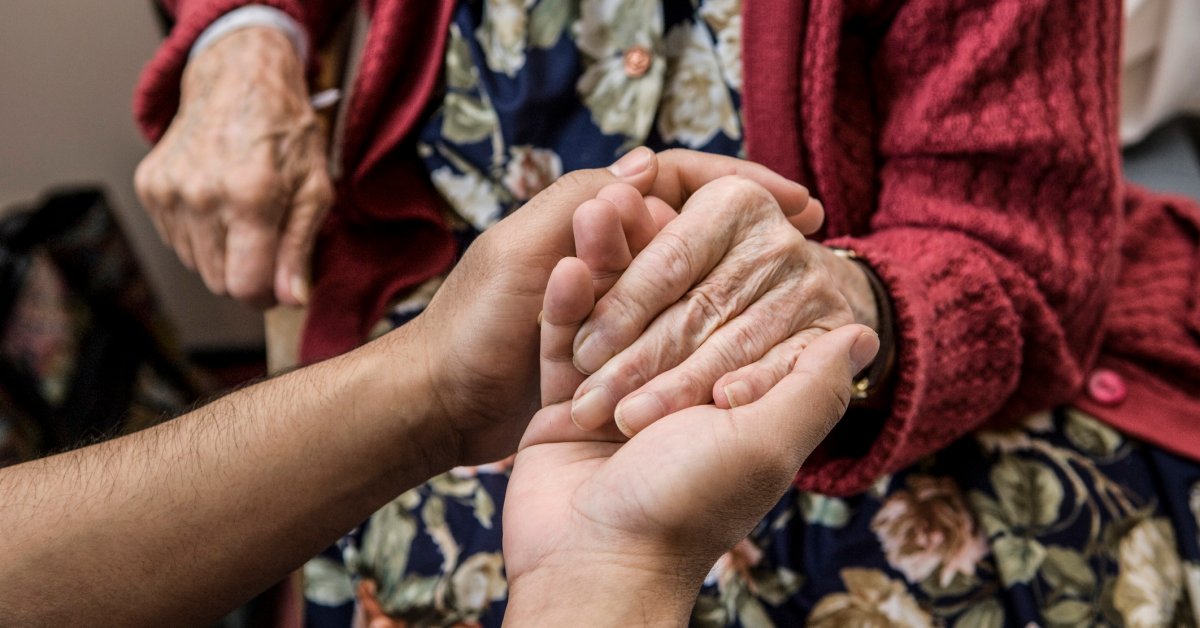
“Sir, might I do know your daughter’s identify?”
The customer support consultant from the vitality firm was asking my father this query for the third time. We have been attempting to switch the possession of his account to me, however for the third time, he couldn’t reply.
This was a defining second in our journey with Alzheimer’s. After 5 years of dwelling with my father’s prognosis, I had regularly taken over virtually each side of his life administration. However this was the primary time I questioned if he might keep in mind me.
The account nonetheless hasn’t been modified to my identify, a stark reminder of the day by day actuality for these caring for family members with Alzheimer’s, and extra broadly the 54 million Individuals who look after getting older family members.
America is on the point of a silver tsunami. By 2030, 24 million folks would require long-term care—about double the quantity who want it as we speak—and our healthcare system is ill-equipped to help all of them. Relations and their communities—kids, spouses, grandchildren, cousins, and associates—might want to fill the hole. However our system isn’t designed to help this shift in family decision-making. To offer seniors a greater high quality of life, we’ll must make a societal shift throughout authorities, companies and inside our personal households. And sensible, accessible know-how is the glue that may maintain all of it collectively.
Learn Extra: Why Individuals Are Uniquely Afraid to Develop Outdated
Eight years in the past, when my father was first identified, I used to be simply beginning my profession in tech in New York, whereas he was dwelling within the Bay Space the place I grew up. I used to be decided to keep up his independence for so long as doable, and I centered on utilizing know-how to do that from afar, a objective that allowed me to handle my very own profession and life in a distinct metropolis
In accordance with an AARP survey, about 80% of American seniors want to keep at dwelling for so long as doable. Ageing in place gives improved high quality of life and higher well being outcomes than assisted dwelling services. The problem is that, aside from the occasional 15-minute physician’s appointment, aiding somebody who might not be capable to accomplish all day by day dwelling actions on their very own normally falls to households to determine. This complete new job can typically be anxious, pricey, and emotionally overwhelming.
Early on, I found that with my father’s permission, and a smartphone, Wi-Fi entry, a small funding in {hardware}, and a big funding of time and vitality, it was doable to create a setup that labored. I discovered it efficient to arrange shared accounts with my father and safely retailer most of his usernames and passwords so I might simply coordinate his communications and entry sure providers. I helped him automate his medical insurance and mortgage funds, switched most of his payments to on-line, and recorded as a lot key info as doable. Over time, I created distant entry to his dwelling with sensible units that permit me to drop in every time I need and cameras that assist let me know the place my father is, and that he’s secure. I discovered high quality in-home assist with two fantastic dwelling well being aides by a web-based platform in whose palms I felt assured leaving my father with in the course of the day.
However that wasn’t with out trial and error. Even with entry to all his on-line accounts, I typically discover myself fumbling between his and my very own many on-line accounts and infrequently lacking essential issues. In a single instance from the start, I missed a number of of my dad’s bank card funds, which tanked his credit score rating. Due to that, I used to be unable to refinance his mortgage to make the most of higher rates of interest till I added him onto my very own bank card and rebuilt his credit score over a number of years. I nonetheless have a tough time forgiving myself for this.
A number of years into my journey as a household caregiver, I rapidly realized that with all of those new obligations on prime of my very own life, I used to be burning out. There was a whole different dimension of caregiving I had missed–I needed to discover a method to deal with myself if I used to be going to adequately deal with my dad. I based a web-based group of caregivers. We shared recommendation and suggestions for serving to our dad and mom on the day-to-day. It supplied me a lifeline to the emotional help and empathy I wanted when issues received robust. And the expertise I had with my on-line group and the common issues these caregivers confronted and shared gave me the concept for an answer to assist not simply me and my dad, however everybody.
For many individuals, establishing a fancy association of know-how and paid well being aides could be extraordinarily daunting and even inaccessible. Getting so far took loads of time and vitality and funding. Taking part in on-line communities can take the time caregivers desperately don’t have. Paid assist is usually a privilege. This is the reason accessible know-how, skilled suggestions, and group sources are the essential lacking items in household caregiving. The wrestle is actual. It may very well be a lot simpler.
I’m hopeful that the present revolution underway in synthetic intelligence will make an enormous distinction. We will already see this in motion with Replika, the AI app that chats with you as an actual pal would. By studying about you thru your conversations over time, Replika creates a digital companion that may alleviate emotions of loneliness within the aged and supply emotional help for caregivers in tough circumstances. Whereas chatbots can’t totally substitute actual human interplay as we speak, they will nonetheless serve a useful objective for individuals who converse with them.
In actual fact, my journey with my dad has led me to design an app for household caregivers, partly as a result of the caregivers in my group have requested for it, and partly as a result of my dad would need our household’s expertise to assist others. We’re creating methods to leverage the collective knowledge of household caregivers—all of the lifehacks, suggestions, and tips—and constructing fashionable instruments that may take over the heavy lifting for individuals who want it now, and all these but to come back.
There’s little doubt that caregiving in America presents a formidable problem. With my very own father, I do know we’re in a slowly shedding battle in opposition to Alzheimer’s. However eight years into this journey, I additionally hope we’re dwelling proof we don’t have to easily resort to the outdated methods of taking good care of one another. There’s new, higher methods for households to make the most of and a path to extra dignity and treasured time with one another. With ingenuity and dedication, superior applied sciences can and should rise to the event, giving household caregivers what they should journey out the silver tsunami.
Extra Should-Reads From TIME



